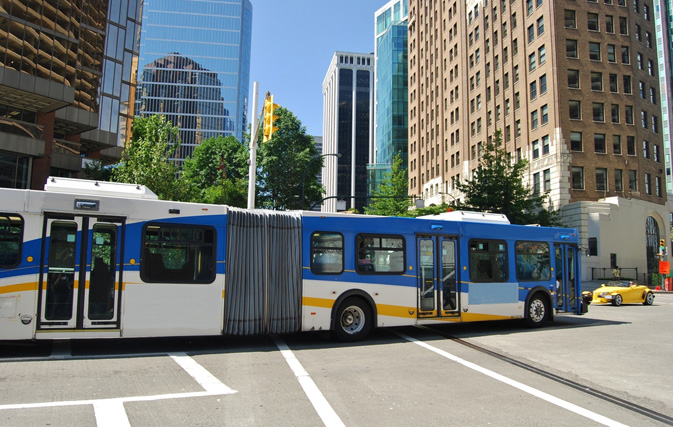VANCOUVER — Metro Vancouver mayors are calling on the province to find a way to fund transit upgrades now that residents have voted against paying an extra half-per cent sales tax to raise $7.5 billion.
There is “no Plan B” to come up with money for more buses, roads, a subway extension, a new bridge and other projects, said Vancouver Mayor Gregor Robertson, who heads the mayors’ council representing 21 municipalities and a First Nation.
Sixty-two per cent of Metro Vancouverites rejected the mayors’ tax-hike proposal.
“The mayors have been unanimous in stating that property tax is not an option to fund the mayors’ plan going forward. We need an alternate solution from the B.C. government,” Robertson said after Elections BC released the results of a plebiscite Thursday.
“It’s very difficult to work out how we might get different projects advanced, how we would access the funding from the provincial and federal governments and get those projects on track,” Robertson told a news conference.
Surrey Mayor Linda Hepner said she has been speaking to private partners about raising money for rapid transit to accommodate one million more people expected in the region over the next 30 years.
“We cannot expect to have those million people arrive here ? without improvements to the south of the Fraser (River) connection and I am committed to that rail project even given the disappointing results today,” she said.
Jordan Bateman, who was a prominent force against the tax hike, said cash-strapped residents wanted accountability and better management from TransLink, the region’s transit authority.
The No side prevailed with a campaign budget of $40,000 while the Yes side spent over $5.8 million promoting its stance, noted Bateman, who heads the western chapter of the Canadian Taxpayers Federation.
Maple Ridge, Langley and Richmond residents voted overwhelmingly against the tax while the highest support for the proposal came from residents on Bowen Island.
The village of Belcarra and an unincorporated electoral area that includes the University of British Columbia were the only other jurisdictions to register more than 50-per-cent support for the tax.
Residents in Vancouver voted 51 per cent against the proposal.
During the 2013 provincial election campaign, Premier Christy Clark called for a plebiscite on any new taxes to pay for transit projects and later said the government wouldn’t get involved in promoting a Yes vote.
Opposition New Democrat Leader John Horgan said Thursday that Metro Vancouver is the province’s economic engine and that Clark should have campaigned in favour of a tax increase to pay for transportation upgrades.
“She called the plebiscite and then walked away from it,” Horgan said, adding Clark “passed the buck.”
Vancouver Board of Trade CEO Iain Black said a broad coalition of 145 businesses had expected an “uphill battle” in gaining residents’ support for the tax.
“We remain concerned that today’s No outcome will negatively affect livability in the region and that our economy and businesses will suffer without transportation improvements,” he said in a statement.
Metro Vancouver’s transit plebiscite is the first of its kind in Canada. Some American cities, including Los Angeles and Portland, Ore., have used direct votes to garner support for new transportation infrastructure.
